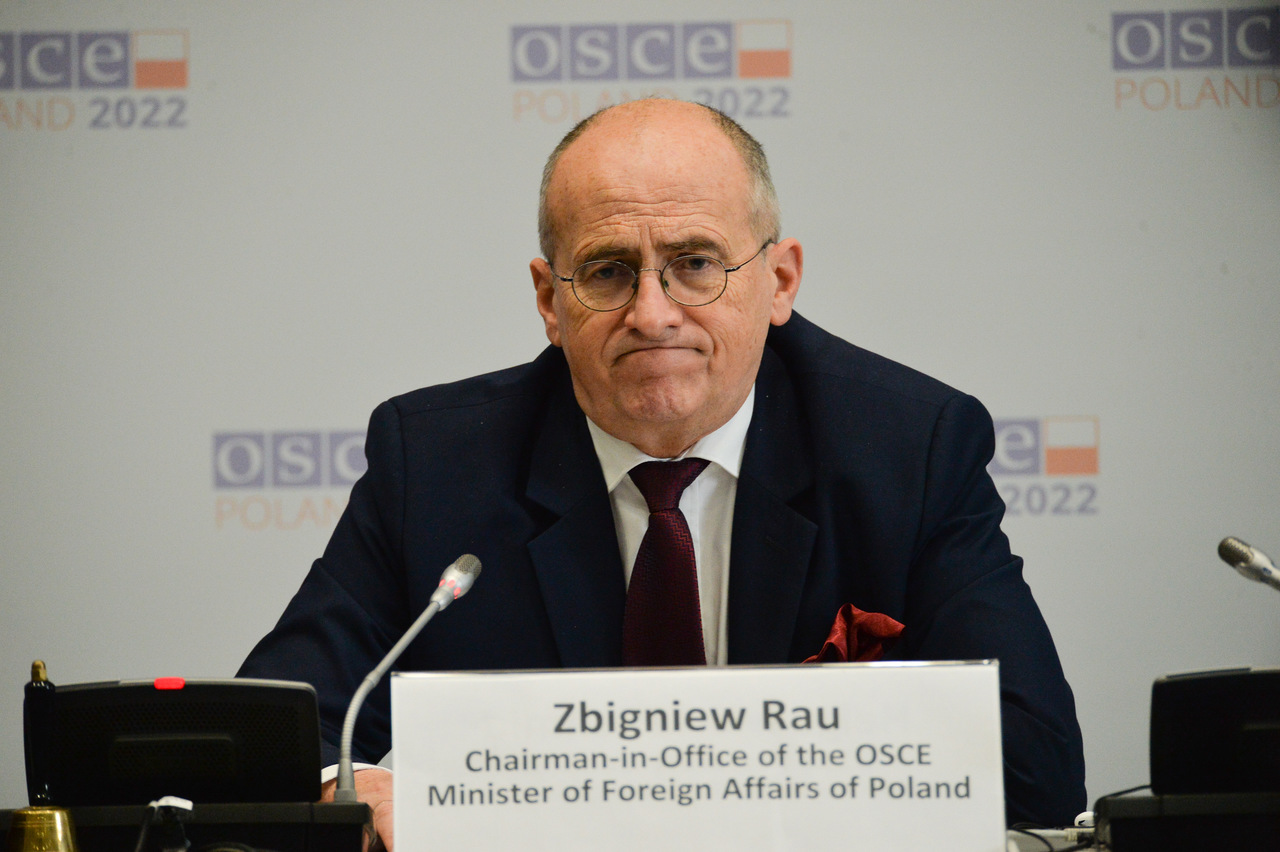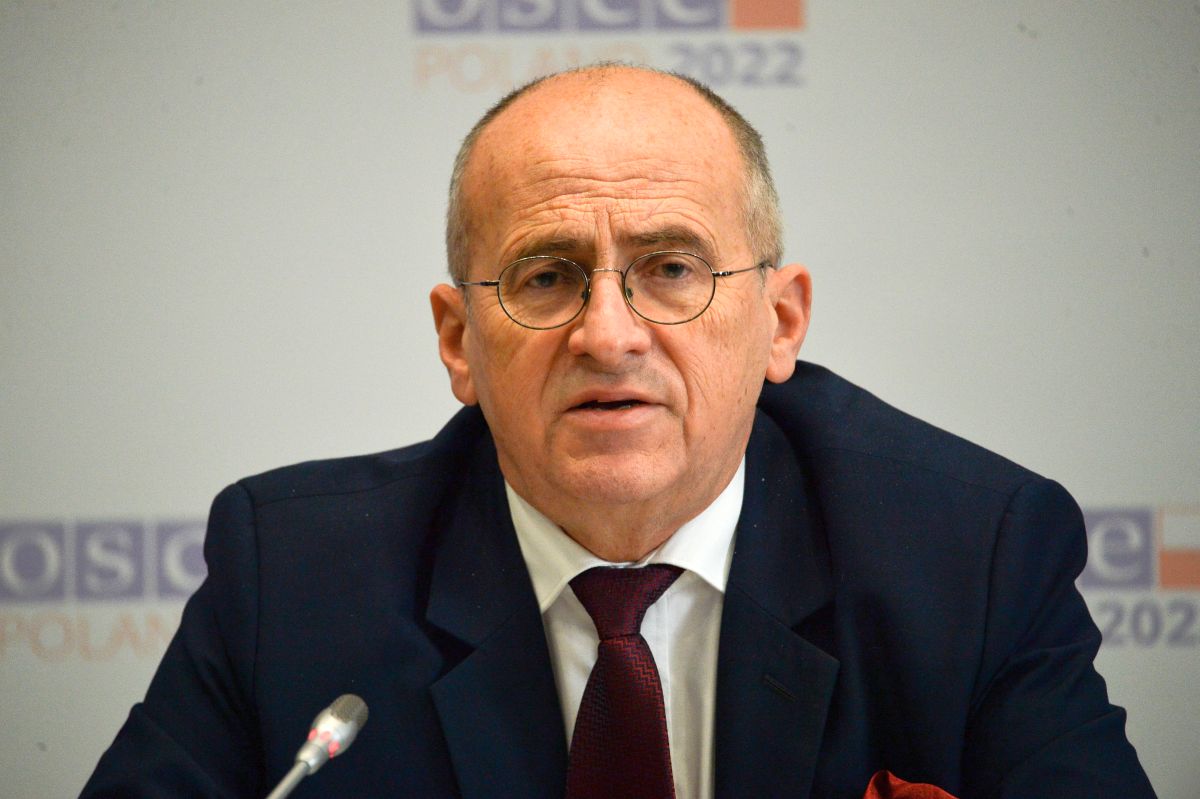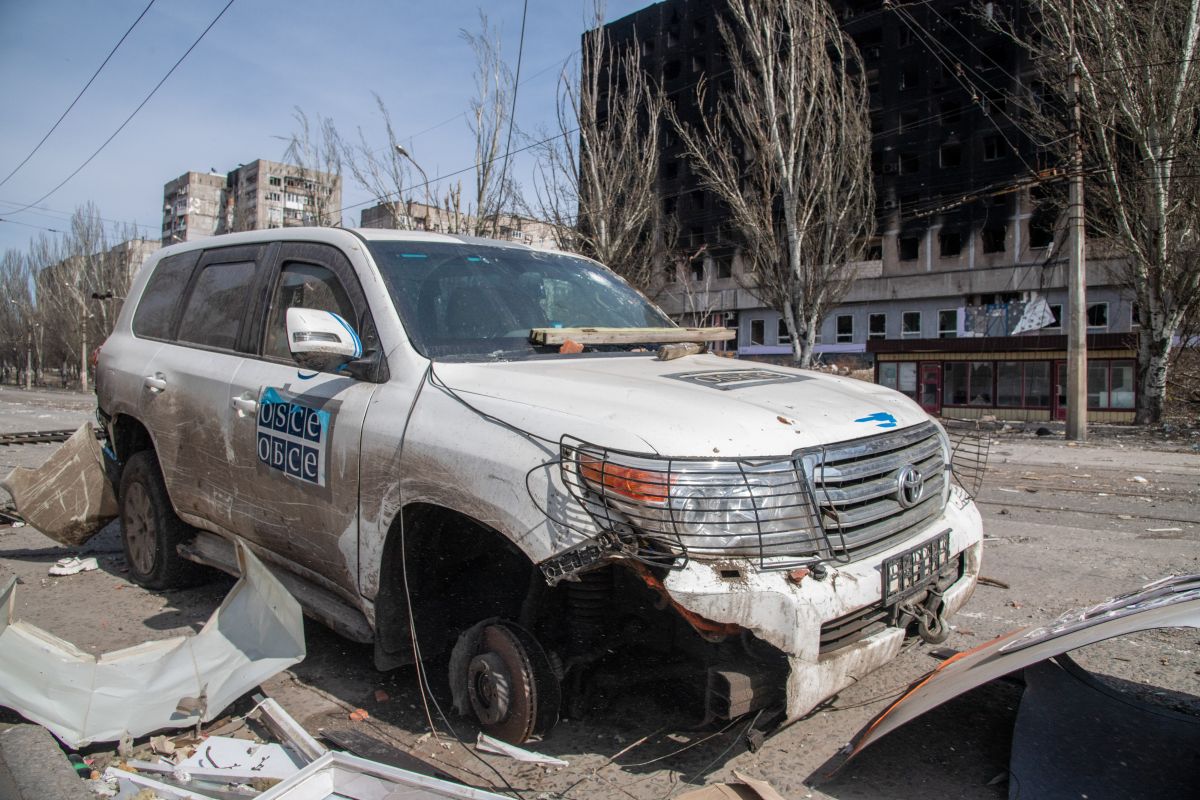Underestimated, Yet Irreplaceable: The OSCE Maintains Focus on the Human Dimension
Russia’s aggression against Ukraine and the escalation of conflicts in the South Caucasus and Central Asia undermine the effectiveness of OSCE, usually assessed through the prism of its politico-military dimension. However, the organisation’s activities within the human dimension confirm its purpose. While OSCE members generally agree that lasting security cannot be achieved without respect for human rights and democratic institutions, their practice raises many concerns. In this context, the OSCE remains in many cases the only support for human rights defenders in non-democratic countries.
 Aleksiej Witwicki/Gazeta Polska/Forum
Aleksiej Witwicki/Gazeta Polska/Forum
Instruments and Institutions
The human dimension is one of the three areas, institutionally called “baskets”, of cooperation between the OSCE states for the benefit of international security, along with politico-military and economic and environmental issues. It covers elements related to human rights and democratic institutions. Two instruments are used to verify that OSCE states respect these principles: the Vienna Mechanism enables participating states to raise in the OSCE forum issues related to democracy and respect for human rights in another participating state; the Moscow Mechanism complements it with the possibility of establishing a special mission to solve problems of a human dimension in a given country. In recent years, these mechanisms have been used more and more often— 12 times since the OSCE’s establishment in 1991, including three this year (in connection with the aggression against Ukraine). However, the use of these mechanisms, apart from the possible identification of violations and signalling that they are not tolerated by OSCE members, does not lead directly to holding a state legally accountable by the organisation. Reports prepared under the Moscow Mechanism may, however, be used as evidence in proceedings before national or international courts.
At the institutional level, the Office for Democratic Institutions and Human Rights (ODIHR), based in Warsaw, supports dialogue between participating countries as well as between their authorities and civil society organisations. The Office deals with issues such as democratisation and improvement of legislative processes, the rule of law, and the fight against discrimination. Two other OSCE bodies play a similar role. The activity of the Representative on Freedom of the Media focuses on supporting participating countries in fulfilling their obligations concerning, among others, access to information, media pluralism, journalists’ safety, and fighting hate speech. The High Commissioner on National Minorities is involved in disputes that may develop into a conflict, aiming at solving structural problems and direct (e.g., ethnic) causes of social tensions. Moreover, there is a project coordinator in Uzbekistan, OSCE offices in other Central Asian republics, and missions of the participating countries in Moldova and the Western Balkans countries.
The Challenges of the Human Dimension
Despite the broad spectrum of activities, the OSCE’s financial and human resources remain modest. The annual budget of the organisation, based on adoption by consensus, has been particularly problematic, especially in recent years, and amounted to less than €140 million in 2021 (ODIHR receives about €16.4 million). In 2021, the OSCE employed about 550 people in its structures and around 2,330 as mission members, while the ODIHR itself had 153 officers, including 27 people involved in individual projects financed from outside the OSCE budget.
Cooperation with authoritarian states also remains a serious challenge. Russia often accuses the OSCE of conducting activities within the human dimension that constitute interference in the internal affairs of states and contrary to its Final Act of 1975, which is an assertion of the violation of their sovereignty. This view is echoed by Central Asian states that criticise the OSCE for focusing too much on the post-Soviet area and disregarding violations committed by Western states. In addition, Russia uses the consensus mode of decision-making in the OSCE to block its activities, for example, the organisation of the Human Dimension Implementation Meeting (HDIM) in 2022. The threat of its objection may also cause difficulties in prolonging the OSCE presence in the Western Balkans, Moldova, and Central Asia at the end of this year. Although in the absence of unanimity there is a possibility of extra-budgetary financing by the countries concerned, they are no longer OSCE missions.
Achievement of the Human Dimension
The OSCE is gradually extending the scope of its human dimension instruments. For example, election observers were initially sent to countries in the post-Soviet area, but since 2002 they also regularly monitor the voting held in the West, including in connection with the introduction of new methods of voting and counting votes. Thirty years since its inception, ODIHR deployed its 400th observer mission in 2021.
The OSCE’s contribution to the protection of human rights also includes the establishment of the HDIM as a series of the largest human rights conferences in Europe. They have become a forum for open and direct dialogue between representatives of civil society and human rights defenders and states. In connection with Russia’s blocking the HDIM in 2022, the Polish chairmanship of the OSCE and ODIHR organised the Warsaw Human Dimension Conference at the turn of September and October this year. Within 10 days, apart from the main panels, almost 100 side events were held, attended by around 1,500 people—representatives of states, civil society organisations and human rights defenders. Apart from identifying specific violations, these civil society partners had the opportunity to submit recommendations to the OSCE. In 2021, ODIHR also launched FreedomLab, a secure online platform for human rights defenders offering substantive support and training. This makes the organisation one of the most open to civil-society partners of the international cooperation formats, although the effects of its activities could be better. Among the challenges are, above all, the lack of interest by the authorities of Russia, the Central Asian republics and Belarus in improving the human rights situation in their countries; but it is precisely these problems that highlight the role of the OSCE. Without its involvement, the people of these countries would not be covered by any human-rights protection mechanism.
Although less visible in the entire spectrum of OSCE activities, other projects carried out also deserve attention, such as police training in Central Asian countries on counteracting trafficking in human beings and domestic violence. These projects improve security and respect for human rights at the local level, confirm the presence and involvement of the OSCE in the region, and at the same time do not arouse much controversy compared to, for example, democratisation, and are therefore generally accepted by the local authorities.
Perspectives and Conclusions
Although the human dimension was to play a less and less of a role in the context of the democratisation triggered by the end of the Cold War, its importance has not diminished. For the inhabitants of many participating states, the OSCE is the only regional organisation still operating in the field of democracy and human rights and supporting them through various methods in enforcing respect for their rights by the local authorities.
The OSCE and its human dimension can potentially have a very large impact on the protection of human rights in authoritarian states, evidenced by the authorities of these states blocking the various activities of the organisation. In response, other members look for creative solutions to maintain at least a minimum level of protection for citizens of countries that do not respect democratic standards and human rights. This is why more and more frequent usage of the Vienna and Moscow mechanisms allows for overcoming the impasse related to the organisation’s consensus-based decision-making. In this situation, it is vitally important to continue smaller projects that support local communities, also in non-democratic countries.
In view of the expected paralysis of the political and military dimension, cooperation within the human dimension will be all the more important in the near future. Due to the requirement of consensus, the introduction of new instruments does not seem feasible at the moment. For the OSCE to adapt, states should not give up seeking an agreement on such mechanisms, and lacking that, consistently use the available mechanisms and look for new solutions. In this respect, the special role of chairmanship becomes apparent. For instance, although Poland had to adapt its actions and priorities in the OSCE to the emergency situation caused by the war in Ukraine, it has demonstrated initiative and leadership in human rights, thus defending the OSCE’s achievements in this field.




